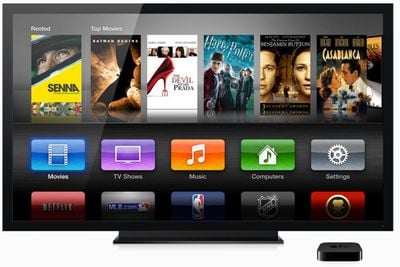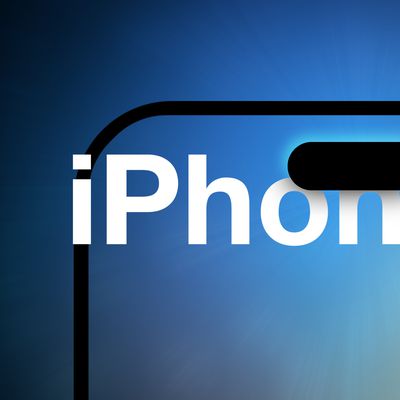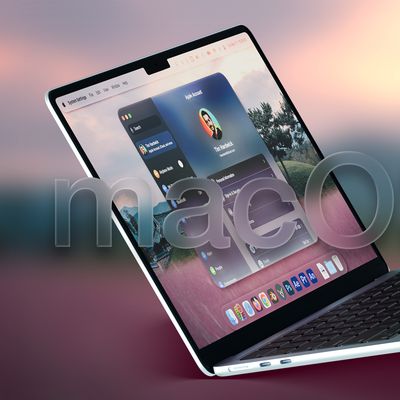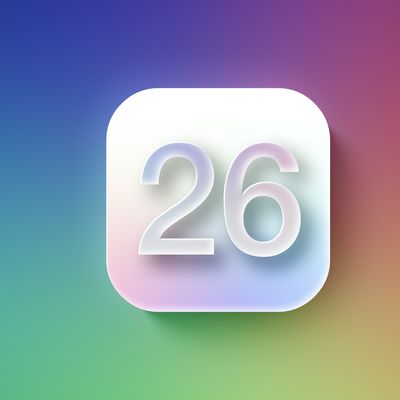NPD: Consumers Want Content, Not 'Smart' Features, on Their TVs
The Daily Mail is reporting that new NPD research has found that consumers want more access to online video services like HBO Go rather than "smart" features like social networking access on their TVs. The research comes a day after it was reported that Intel was planning to launch a TV service and set top box in 2013 that focused on content.
NPD said that a big problem is that TV owners are confused because too much choice is creating a complex user experience.
'To counter this, OEMs and retailers need to focus less on new innovation in this space and more on simplification of the user experience and messaging if they want to drive additional, and new, behaviors on the TV."
Luke Peters, Editor of T3 Magazine, told MailOnline that Smart TVs will only become mainstream when they're as easy to use as changing a channel. Peters also notes that most Smart TV user interfaces are too complex for most people and that the content isn't good enough and that social networking doesn't make a lot of sense on TVs.
Apple has long been rumored to be interested in creating a TV that focuses on content as well in addition to features that could change human-to-TV interaction with Siri, Facetime and motion control. Apple was also rumored to be in talks with cable services like Comcast and Time Warner Cable in mid-2012, although no content deals have materialized yet.

Apple, like Intel, has largely had problems negotiating with content providers because of contractual limitations with cable providers, which may be why Apple's TV offering hasn't appeared yet. Although Intel's offering is set to debut January 7 at CES there's no telling if or when Apple's may debut, although recently it's been rumored that Foxconn is currently testing television set designs in the 50 - 55 inch range.
Popular Stories
While the iPhone 17 Pro and iPhone 17 Pro Max are not expected to launch until September, there are already plenty of rumors about the devices.
Below, we recap key changes rumored for the iPhone 17 Pro models as of May 2025:
Aluminum frame: iPhone 17 Pro models are rumored to have an aluminum frame, whereas the iPhone 15 Pro and iPhone 16 Pro models have a titanium frame, and the iPhone X ...
With the design overhaul that's coming this year, Apple plans to rename all of its operating systems, reports Bloomberg. Going forward, iOS, iPadOS, macOS, tvOS, watchOS, and visionOS will be identified by year, rather than by version number. We're not going to be getting iOS 19, we're getting iOS 26.
Subscribe to the MacRumors YouTube channel for more videos.
iOS 26 will be accompanied by...
Apple's iPhone 17 lineup will include four iPhones, and two of those are going to get all-new display sizes. There's the iPhone 17 Air, which we've heard about several times, but the standard iPhone 17 is also going to have a different display size.
We've heard a bit about the updated size before, but with most rumors focusing on the iPhone 17 Air, it's easy to forget. Display analyst Ross...
Sony today provided a closer look at the iPhone rigs used to shoot the upcoming post-apocalyptic British horror movie "28 Years Later" (via IGN).
With a budget of $75 million, Danny Boyle's 28 Years Later will become the first major blockbuster movie to be shot on iPhone. 28 Years Later is the sequel to "28 Days Later" (2002) and "28 Weeks Later" (2007), which depict the aftermath of a...
The next major version of macOS, now dubbed "macOS 26," is rumored to drop support for several older Intel-based Mac models currently compatible with macOS Sequoia.
According to individuals familiar with the matter cited by AppleInsider, the following Macs will not be supported by the next version of macOS:
MacBook Pro (2018)
iMac (2019)
iMac Pro (2017)
Mac mini (2018)
MacB...
With the next-generation version of iOS and other 2025 software updates, Apple is planning to change its numbering scheme. Rather than iOS 19, which would logically follow iOS 18, Apple is instead going to call the update iOS 26. Apple plans to use 26 across all of its platforms (the number representing the upcoming year), which will presumably be less confusing than having iOS 19, macOS 16,...
Apple is reportedly preparing to implement significant iPhone hardware redesigns each year for the next three generations.
According leaks from the Chinese supply chain disclosed by Weibo user "Digital Chat Station," Apple plans to carry out a series of phased industrial design changes affecting different parts of the iPhone across three consecutive years: 2025, 2026, and 2027. The changes...






















